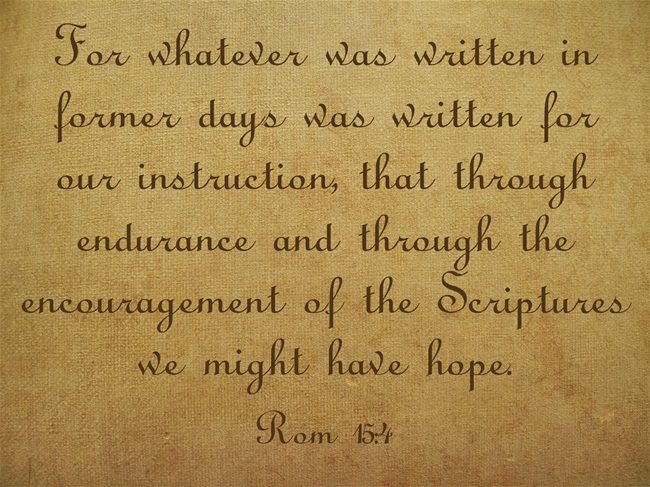Have you heard or read about Narrative Theology? What is Narrative Theology?
Narrative Theology
Narrative Theology I sometimes called “Postliberal Theology” could be described as an effort to see Scripture as a narrative description of the Christian faith and to systemize those narratives into a “systematic theology” (described later). In the latter 20th century, the founders of Yale Divinity School, along with George Lindbeck, Hans Wilhelm Frei and several other Bible scholars, were heavily influenced by the readings of St. Thomas Aquinas and Karl Barth, who along with other French Catholics wanted to reform the Catholic Church. Many people are calling for reform in the modern churches, like a return to biblical preaching, but Narrative Theology was a reaction to this type of theological liberalism that was slowly slipping into churches. Narrative Theology proponents seek to reform the way we understand Scripture in the sense that we focus on the narrative of Scripture as being a clear depiction of the Christian faith, rather than a humanly assembled set of requirement for Christians to live by as cited by Scripture.
Systematic Theology
Systematic Theology seeks to organize and set in an orderly fashion the Christian faith and beliefs. It has even been called “dogmatism” since it is an unwillingness to bend any essential doctrines like the divinity of Christ, that He came in the flesh to die for flesh but also the sinless-ness of Jesus’ life, His perfect and sufficient payment for our sins in order that we might be reconciled back to God from our previous separation due to our sins (Isaiah 59:2). When we trust in Christ, the wrath of God is removed, but rejection of Christ means that wrath still abides on the unrepentant sinner. These beliefs are all systematized in order to make possible a more coherent study of the Word of God in various categories like mercy, grace, forgiveness, heaven, hell, and what the Bible teaches on many different issues. The chief goal is to have a firm grasp on the essential doctrines of the Bible and have them be so established in our minds and hearts (e.g. Rom 10:9-13) that we dogmatically cling to these truths and do not budge.
Criticisms
I think it’s fair to say that there have been some criticisms of Narrative Theology because some see a narrative reading of the Scripture as defining the Christian faith, but making less of the Scripture itself, which may result in making less of the practical applications of the Scriptures. Focusing only on the narrative almost takes the whole Word into a “what have you done for me lately.” Does Narrative Theology also lose something from the context of the chapter and book? Another problem with Narrative Theology as the only standard of understanding the Christian faith is that we have nothing to compare it to so that we might check for error. One example is obedience to the commands of Christ. We can read where Jesus says, if you love me, keep my commandments, and then describe that as a narrative of the faith, however the Scriptures themselves tell us what and where those commands are, not the narrative. It takes more than knowing our Master’s will…it takes doing it. Truth without obedience is hypocrisy; obedience without truth is heresy.
Reformed Theology
Reformed Theology is a reaction of the Protestants (in “protest”) to the teaching and corruption that was rampant in the Catholic Church in the sixteenth century. Charles Spurgeon said that Reformed Theology is simply a return to biblical preaching. Some believe it’s synonymous with Calvinism but actually Reformed Theology is closely tied to the Westminster Confession of Faith and the many Catechisms. This Confession of Faith has been developed over the centuries as a response to heresy and false teachers who, for example, were trying to make Jesus less than God or had not come in the flesh (1 John 4:1-3) or add circumcision to the gospel (Gal 5:2-6).
Conclusion
Jude wasn’t thinking about Narrative Theology when he wrote, “Beloved, although I was very eager to write to you about our common salvation, I found it necessary to write appealing to you to contend for the faith that was once for all delivered to the saints” (Jude 1:3), but it would serve us well to “test the spirits to see whether they are from God, for many false prophets have gone out into the world” (1st John 4:1). Those who hold to Narrative Theology are certainly not false prophets but they, like we, can have our theology wrong, so as long as we get the essentials down (John 3:16; Acts 4:12; Rom 10:9-13), we’ll be okay. Why did Jude find it necessary to write and appeal to them for contending for the faith? Because, by then, “certain people have crept in unnoticed who long ago were designated for this condemnation, ungodly people, who pervert the grace of our God into sensuality and deny our only Master and Lord, Jesus Christ” (Jude 1:4). The narrative description of the Christian faith and essentials is fine, as long as it goes along with the whole Word or the Scriptures.
Article by Jack Wellman
Jack Wellman is Pastor of the Mulvane Brethren Church in Mulvane Kansas. Jack is also the Senior Writer at What Christians Want To Know whose mission is to equip, encourage, and energize Christians and to address questions about the believer’s daily walk with God and the Bible. You can follow Jack on Google Plus or check out his book Teaching Children the Gospel available on Amazon.












